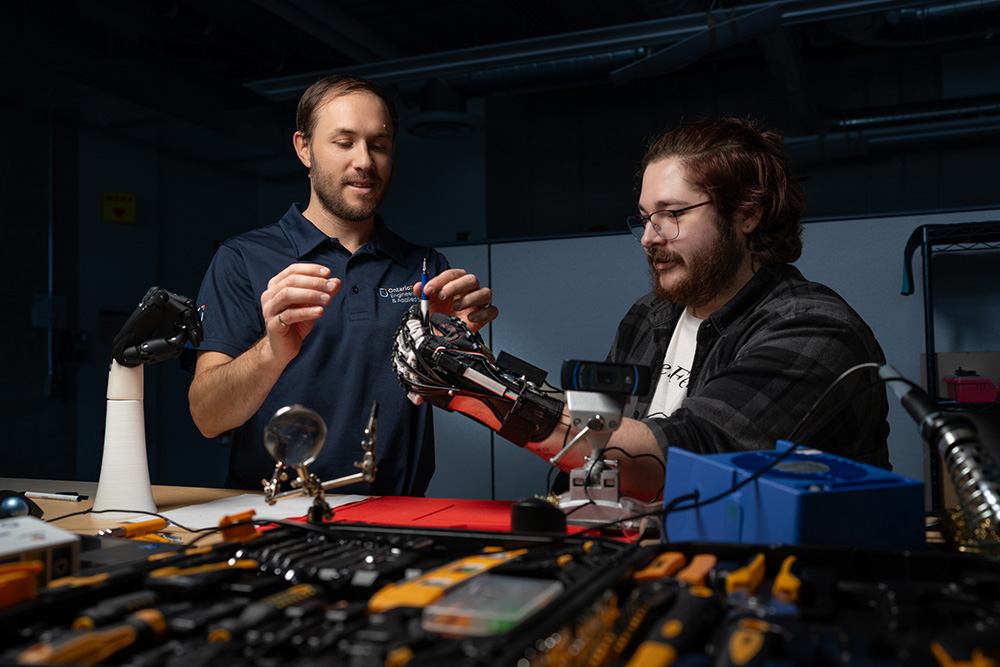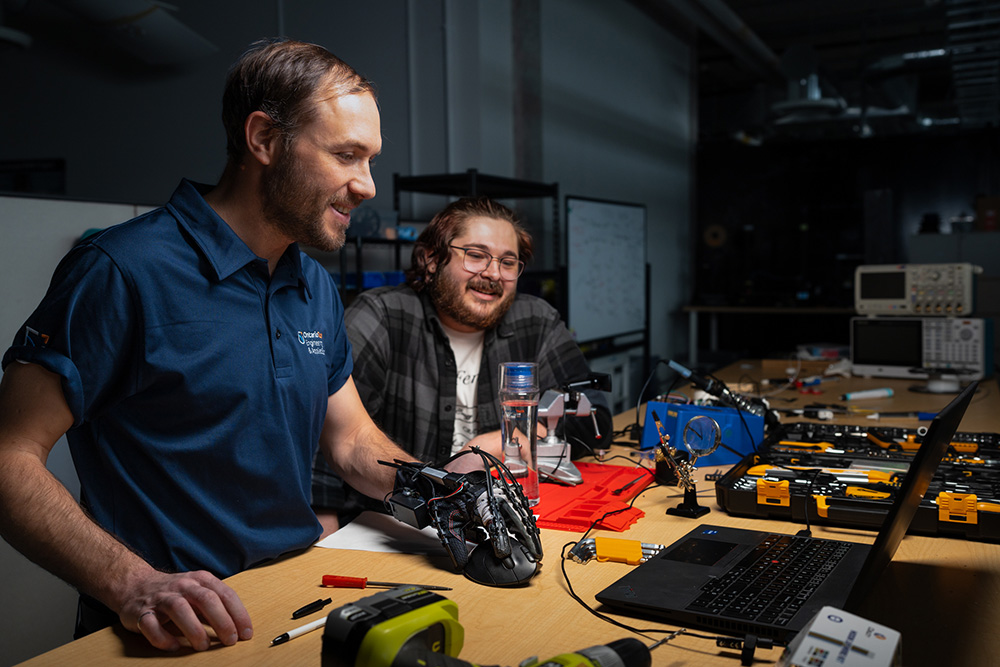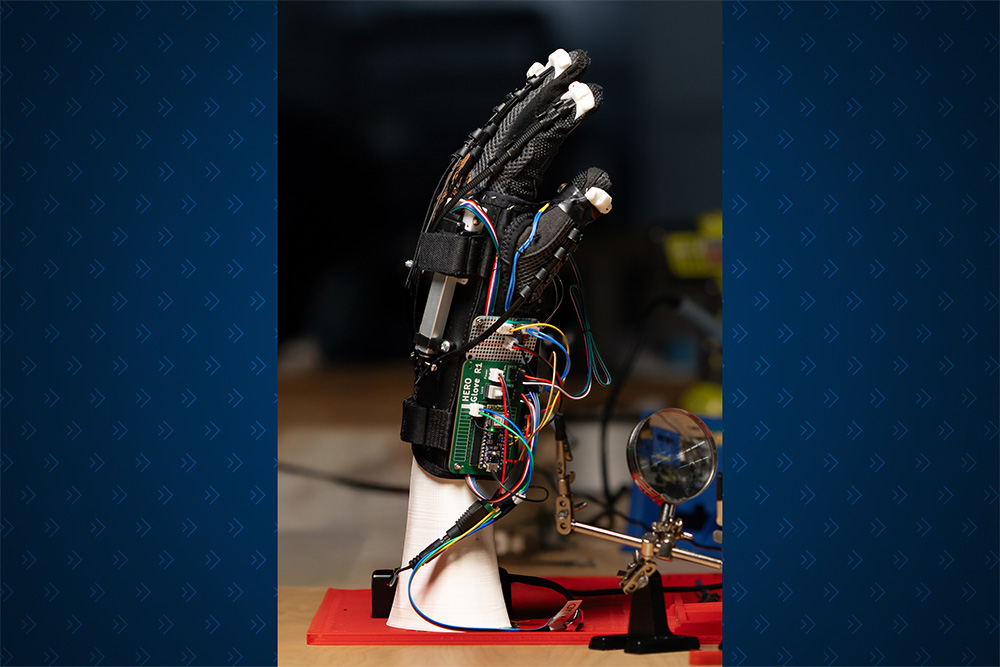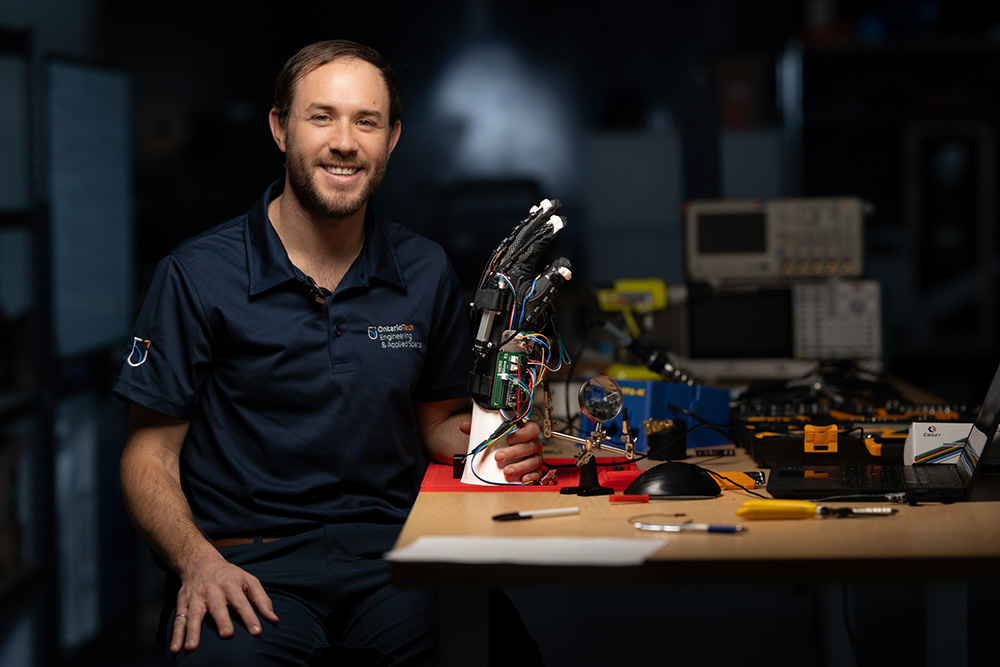‘HERO Glove’ research at Ontario Tech has a hand in improving patients’ lives
Robotic glove restores hand movements for people affected by stroke or spinal cord injury
February 4, 2025

At the intersection of robotics, haptics and neuroscience, Ontario Tech University Mechatronics Engineering researcher Dr. Aaron Yurkewich is advancing rehabilitation technology to help stroke and spinal cord injury patients regain skills for basic tasks like picking up objects or cutting up food.
Dr. Yurkewich, an Assistant Professor in the Faculty of Engineering and Applied Science, invented the Hand Extension Robot Orthosis (HERO) Glove, a battery-powered robotic device whose artificial ‘tendons’ assist patients with tactile control and movement. The glove, which fits over the hand, is activated by either muscle sensors or by shaking, enabling users to hold objects steady.
Dr. Yurkewich is working on refining the HERO Glove by incorporating soft robotics, sensors, and computer-vision strategies with the help of Ontario Tech research colleague Dr. Meaghan Charest-Finn, an expert in control systems and machine learning, and Master of Applied Science (Mechanical Engineering) candidate Daimen Landon-Hoffman.
The HERO Glove project is supported by Canadian technology and AGE-WELL ( Networks Centres of Excellence). While seeking Health Canada approval for further production, the HERO Glove’s open-source build manual is available online for those interested in constructing their own version. The general cost of a HERO Glove is $300.
HERO Glove user testimonials
- “I’ve never been able to do this while holding the toothbrush.”
- “Grip strength is good. I like the sensor for the nerves.”
- “It was like exercise for my hand and finger. I liked and enjoyed working with that.”
Other examples of technology-enabled assistive solutions in development
Dr. Yurkewich also works with international partners, experts in occupational therapy and neuroscience. He mentors Ontario Tech undergraduate engineering students to create advanced mechatronics systems that enhance the usefulness, ease of use and affordability of assistive devices. Current projects include:
- A student-driven project will enable older adults to live independently and reduce their risk for falls through a 3D-printed knee exoskeleton, where users can activate sit-to-stand assistance with the click of a button.
- A second student team is developing a buckle-free wheelchair docking system for trains, that allows users to secure themselves onboard independently.
Related link
- Learn more about Tech with a Conscience at Ontario Tech University.
Media contact
Communications and Marketing
Ontario Tech University
communications@ontariotechu.ca






